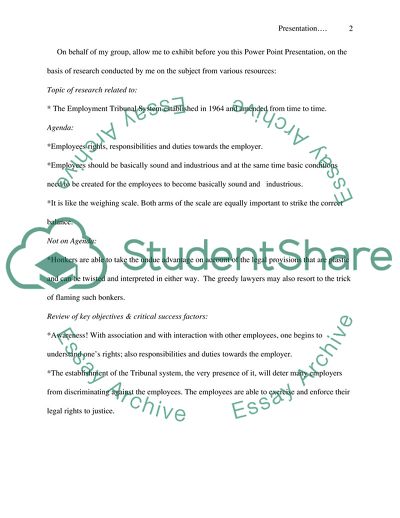Cite this document
(The Employment Tribunal System PowerPoint Presentation, n.d.)
The Employment Tribunal System PowerPoint Presentation. Retrieved from https://studentshare.org/law/1724559-presentation-report
The Employment Tribunal System PowerPoint Presentation. Retrieved from https://studentshare.org/law/1724559-presentation-report
(The Employment Tribunal System PowerPoint Presentation)
The Employment Tribunal System PowerPoint Presentation. https://studentshare.org/law/1724559-presentation-report.
The Employment Tribunal System PowerPoint Presentation. https://studentshare.org/law/1724559-presentation-report.
“The Employment Tribunal System PowerPoint Presentation”, n.d. https://studentshare.org/law/1724559-presentation-report.


